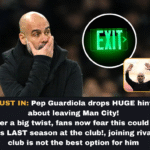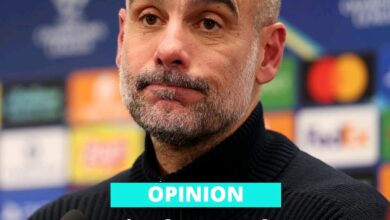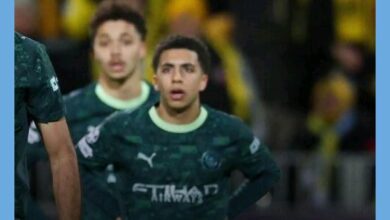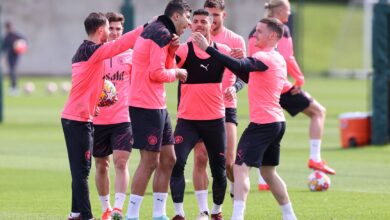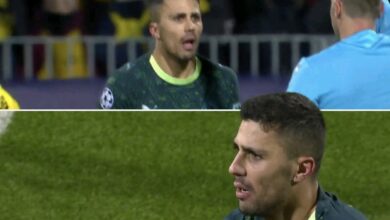The End of an Era? Manchester City’s Crossroads and Pep Guardiola’s Uncertain Future
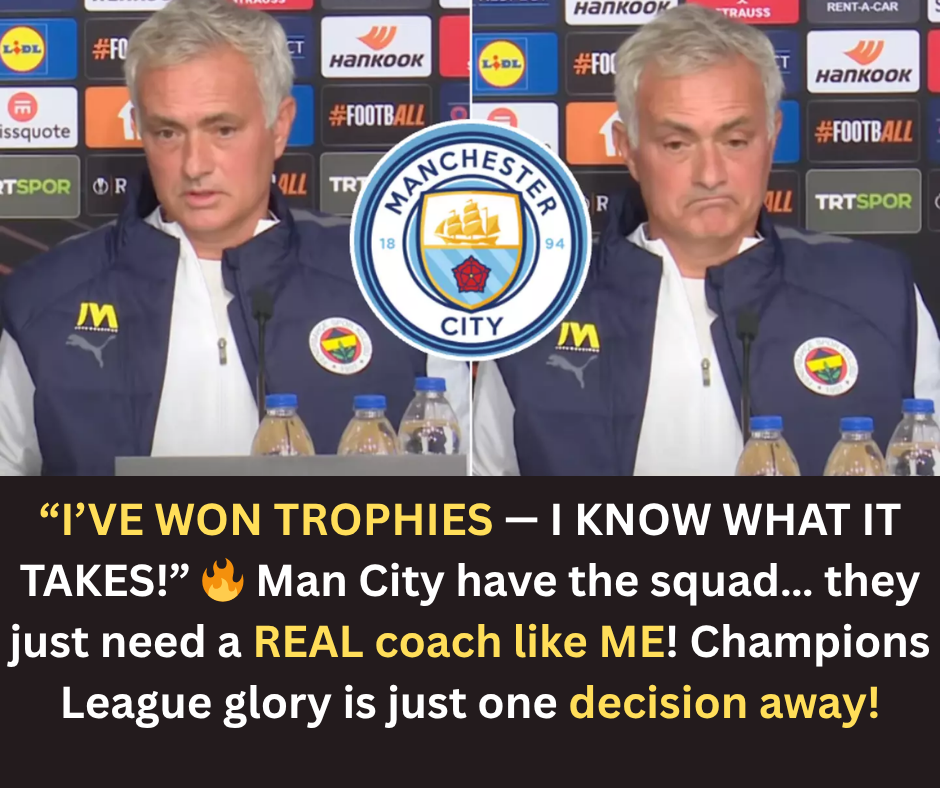
The footballing world rarely witnesses the decline of a dynasty in real-time, but Manchester City’s 2024-25 campaign may have provided exactly that spectacle. For the first time since 2017, Pep Guardiola’s Manchester City finished a season empty-handed, marking what many observers are calling a definitive turning point in the club’s modern history. The trophyless campaign has not only raised questions about the team’s immediate future but has also sparked intense debate about whether the Catalan manager’s remarkable tenure at the Etihad Stadium is approaching its natural conclusion.
The significance of this barren season cannot be overstated. Since Guardiola’s arrival in 2016, Manchester City had become accustomed to silverware, collecting Premier League titles with the regularity of a Swiss timepiece and finally conquering Europe with their maiden Champions League triumph. The sudden halt to this success has sent shockwaves through the footballing establishment and prompted serious questions about the sustainability of Guardiola’s methods and philosophy at the highest level.
The Wirtz Rejection: A Telling Moment
Perhaps no single incident better encapsulates Manchester City’s current predicament than Florian Wirtz’s decision to reject their advances. The Bayer Leverkusen midfielder, widely regarded as one of Europe’s most promising talents, had been identified as the ideal successor to Kevin De Bruyne, who departed as a free agent during the summer transfer window. City’s pursuit of the German international represented more than just a transfer target; it symbolized their attempt to transition from one golden generation to the next.
However, Wirtz’s ultimate rejection of City’s overtures reportedly stemmed from Guardiola’s inability to provide assurances about his own future at the club. When the young midfielder inquired about the manager’s long-term commitment, Guardiola’s honest but perhaps damaging response – that he couldn’t guarantee how much longer he would remain at the Etihad – proved to be a deal-breaker. This moment of transparency, while admirable, has become emblematic of the uncertainty that now shrouds the club.
The Wirtz snub represents a broader challenge facing Manchester City in their current transitional phase. Top-tier players, particularly those in their prime or approaching it, seek stability and clear project vision when making career-defining moves. Guardiola’s uncertainty about his own future creates a ripple effect that extends far beyond team selection and tactical decisions; it influences the club’s ability to attract and retain world-class talent.
Didi Hamann’s Damning Assessment
Former Liverpool and Germany midfielder Didi Hamann’s critique of Guardiola’s current situation provides insight from someone who has experienced the pressures of elite football management from multiple perspectives. Hamann’s assertion that City needs “a manager who lights a fire up in the players” and brings “fresh input” reflects a growing sentiment among football observers that Guardiola’s methods may have reached a point of diminishing returns.
Hamann’s reference to Guardiola’s previous stint at Bayern Munich is particularly telling. The former midfielder noted that when Guardiola left Bayern after three years, players expressed exhaustion from his demanding methods. This pattern of intensity followed by burnout has characterized much of Guardiola’s managerial career, raising questions about whether his approach is sustainable over extended periods, even with squads of elite professionals.
The suggestion that “things do get stale” touches on one of football management’s most persistent challenges: maintaining motivation and freshness over multiple seasons. Guardiola’s meticulous attention to detail, his demanding training sessions, and his constant tactical evolution have been hallmarks of his success. However, these same qualities that drive excellence can also lead to mental fatigue among players who have been exposed to them for extended periods.
The Transitional Challenge
Manchester City’s current phase represents one of football’s most complex challenges: managing the transition from one successful generation to the next while maintaining competitive standards. The departure of Kevin De Bruyne, arguably the most influential player of Guardiola’s tenure, symbolizes the broader generational shift occurring within the squad. Other key figures from City’s golden period are either aging or have already moved on, creating space for new talent but also removing the institutional knowledge and leadership that drove previous successes.
This transitional period is particularly challenging for a club of City’s stature because expectations remain sky-high despite the changing personnel. The recruitment strategy has pivoted toward younger players with high potential rather than established stars, a approach that carries inherent risks. Young players require time to develop, adapt to Guardiola’s complex tactical systems, and handle the pressure of performing for one of the world’s biggest clubs.
The integration of youth represents both an opportunity and a vulnerability. While fresh legs and enthusiasm can reinvigorate a squad, the learning curve associated with Guardiola’s sophisticated tactical demands means that immediate results are far from guaranteed. This reality creates a tension between short-term competitive needs and long-term squad development goals.
The Guardiola Paradox
Pep Guardiola’s situation at Manchester City presents a fascinating paradox in modern football management. On one hand, his achievements at the club are undeniable: multiple Premier League titles, domestic cups, and the long-awaited Champions League triumph have established him as one of the greatest managers in the club’s history. His tactical innovations and commitment to attractive football have not only brought success but have also elevated the club’s global profile and reputation.
However, the very intensity and demands that drive Guardiola’s success may also contain the seeds of its own limitations. His perfectionist nature, while producing extraordinary results, can be mentally and physically exhausting for players over extended periods. The complexity of his tactical systems requires constant concentration and adaptation, creating a cognitive load that some players may struggle to maintain indefinitely.
Furthermore, Guardiola’s tendency to evolve and modify his approach continuously, while tactically brilliant, can create uncertainty among players who must constantly adapt to new roles and responsibilities. This constant state of tactical evolution, combined with his demanding personality, may contribute to the burnout that Hamann referenced regarding the Bayern Munich experience.
Historical Context and Patterns
Examining Guardiola’s career trajectory reveals interesting patterns that may inform predictions about his future at Manchester City. His tenure at Barcelona, widely considered his most successful period, lasted four years and ended with his decision to take a sabbatical, citing mental exhaustion. His subsequent three-year stint at Bayern Munich followed a similar pattern of initial success followed by diminishing returns and eventual departure.
At Manchester City, Guardiola has already exceeded his usual tenure length, now in his ninth season at the club. This extended stay represents both a testament to his commitment to the City project and a potential indicator that his methods may be approaching their natural expiration date. The question becomes whether he can rediscover the motivation and tactical freshness that characterized his earlier years at the club.
The historical precedent suggests that Guardiola’s most successful periods often coincide with his early years at each club, when his methods are novel and his energy is at its peak. The challenge for both Guardiola and Manchester City is determining whether this pattern is inevitable or whether it can be broken through reinvention and adaptation.
The Recruitment Imperative
Manchester City’s current situation highlights the critical importance of recruitment in maintaining competitive standards during transitional periods. The club’s recent focus on younger players represents a strategic shift that carries both promise and risk. While young talents like those being targeted offer long-term potential and the possibility of developing into world-class players under Guardiola’s guidance, they also require patience and development time that may not align with immediate competitive demands.
The Wirtz situation exemplifies the challenges facing City’s recruitment strategy. The German midfielder represented the perfect profile: young enough to develop further, talented enough to make an immediate impact, and experienced enough to handle the pressure of playing for a top club. His rejection based on concerns about managerial continuity suggests that City’s recruitment efforts may be hampered by the uncertainty surrounding Guardiola’s future.
This creates a problematic cycle: the club needs top talent to maintain competitive standards, but uncertainty about the manager’s future makes it difficult to attract such talent. Simultaneously, the inability to attract premium players may accelerate any decline in performance, potentially hastening Guardiola’s departure and creating a self-fulfilling prophecy.
The Financial and Competitive Landscape
Manchester City’s situation must also be understood within the broader context of modern football’s financial and competitive landscape. The club’s significant investment in infrastructure, youth development, and first-team talent has created expectations of consistent success that extend beyond individual managers or players. The pressure to deliver results is not merely sporting but also commercial, given the club’s global brand and financial commitments.
The competitive landscape in the Premier League and European football has also evolved significantly during Guardiola’s tenure. Other clubs have adapted to his tactical innovations, developed counter-strategies, and invested heavily in their own squads and coaching staffs. What once provided Manchester City with significant competitive advantages may now be considered standard practice across elite football.
This evolution requires constant adaptation and innovation from Guardiola and his coaching staff. The question becomes whether he retains the motivation and creativity necessary to stay ahead of this competitive curve, particularly given the additional challenges posed by squad transition and the psychological effects of a trophyless season.
Player Perspectives and Squad Dynamics
The impact of Guardiola’s demanding methods on player welfare and squad dynamics cannot be understated. While his tactical brilliance and attention to detail have helped numerous players reach new heights in their careers, the intensity of his approach can also create stress and fatigue that affects performance and longevity.
The current squad transition period adds another layer of complexity to these dynamics. Veteran players who have experienced success under Guardiola may feel the weight of maintaining standards while adapting to new teammates and potentially modified roles. Meanwhile, younger players face the challenge of meeting Guardiola’s exacting standards while developing their own games and handling the pressure of representing one of world football’s most scrutinized clubs.
The psychological aspect of coming off a trophyless season cannot be ignored. For a squad accustomed to regular success, the experience of failure – even if temporary – can create doubt and anxiety that affects future performance. Guardiola’s ability to manage these psychological challenges while implementing necessary tactical and personnel changes will be crucial to the team’s revival.
Alternative Paths Forward
The debate surrounding Guardiola’s future at Manchester City raises important questions about the club’s strategic options. Hamann’s suggestion that City needs “a manager who lights a fire up in the players” implies that a change in leadership style might be necessary to re-energize the squad and restore competitive standards.
However, replacing a manager of Guardiola’s caliber and achievements presents its own risks and challenges. Any successor would face enormous pressure to maintain the standards established during his tenure while potentially implementing different methods and philosophies. The disruption associated with such a significant change could temporarily harm performance, creating a difficult transition period.
Alternatively, Guardiola himself might find ways to reinvent his approach and rediscover the innovation that has characterized his most successful periods. This could involve tactical evolution, changes to training methods, or modifications to his management style that address the fatigue and staleness that critics have identified.
The Broader Implications
The Manchester City situation has implications that extend beyond the club itself. Guardiola’s potential departure would represent a significant shift in the Premier League’s competitive balance and tactical landscape. His influence on English football has been profound, inspiring tactical innovations and raising standards across the league.
For Manchester City, the challenge extends beyond immediate competitive concerns to questions of identity and long-term strategic direction. The club’s association with Guardiola has become integral to its modern identity, and his departure would necessitate a redefinition of the club’s footballing philosophy and objectives.
The situation also highlights broader questions about the sustainability of high-intensity management approaches in modern football. As the game becomes increasingly demanding physically and mentally, the long-term viability of Guardiola’s methods may provide insights relevant to football management more broadly.
Conclusion: A Crossroads Moment
Manchester City and Pep Guardiola find themselves at a genuine crossroads moment. The 2024-25 season’s disappointments, combined with recruitment challenges and questions about long-term sustainability, have created a situation that demands careful consideration and decisive action. Whether this represents the natural end of a successful cycle or merely a temporary setback that can be overcome through adaptation and renewal remains to be seen.
The Florian Wirtz rejection serves as a powerful symbol of the uncertainty that currently surrounds the club. It demonstrates how questions about managerial continuity can affect every aspect of a football club’s operations, from recruitment to player morale to long-term strategic planning.
Ultimately, the resolution of this situation will depend on several factors: Guardiola’s own motivation and desire to continue, the club’s willingness to support him through a difficult transitional period, and the ability of both manager and club to adapt to changing circumstances while maintaining competitive standards. The coming months will likely prove decisive in determining whether this represents the end of an era or merely a challenging chapter in an ongoing success story.
Whatever the outcome, the Manchester City situation provides a fascinating case study in the complexities of modern football management, the challenges of maintaining excellence over extended periods, and the delicate balance between stability and change that defines elite sports organizations. The football world will be watching closely to see how this story unfolds.


